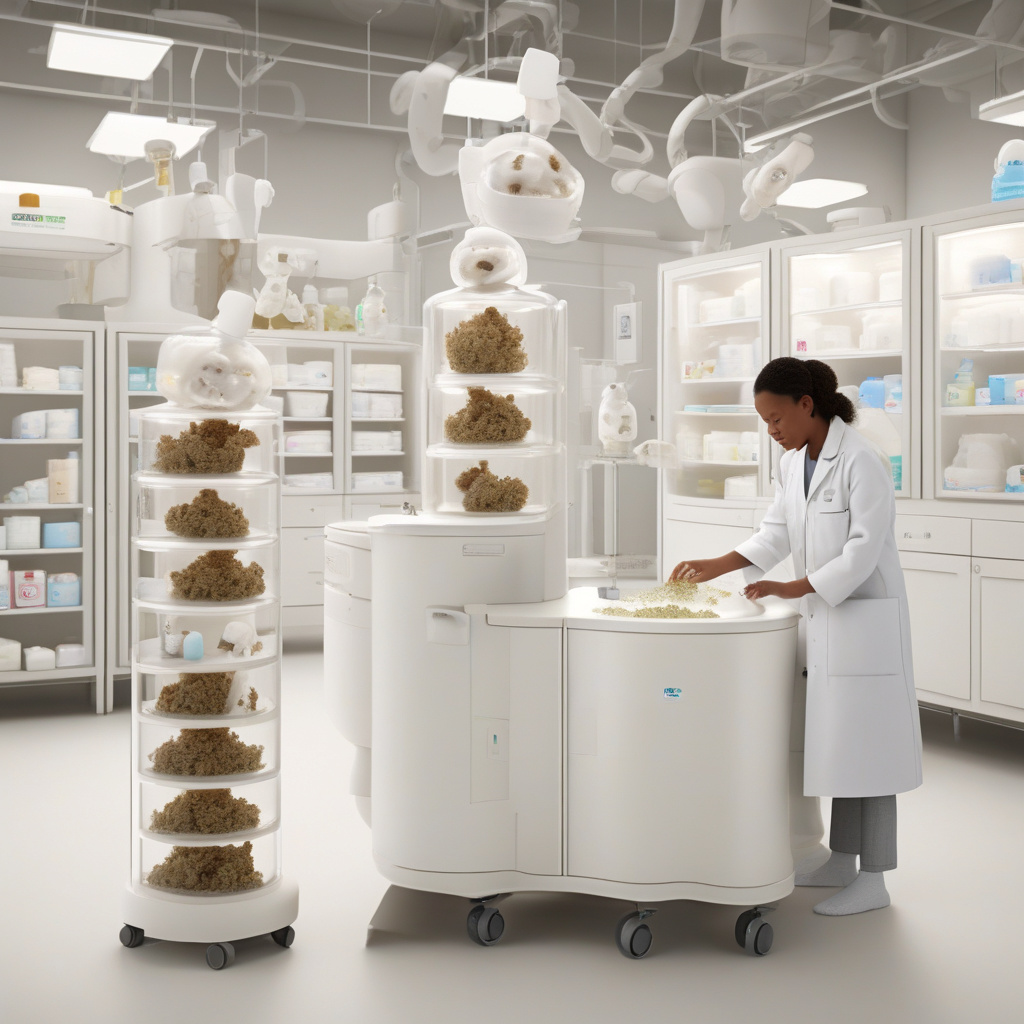Turning Baby Poop into Soil: How a US Startup is Revolutionizing Diaper Disposal
Disposable diapers are a huge and ever-increasing problem. Millions of disposable diapers end up in landfills every year, where they can take up to 500 years to decompose. This staggering statistic has led to a growing demand for eco-friendly diaper options that won’t harm the environment.
In response to this pressing issue, a US startup has come up with a groundbreaking solution that combines baby poop and fungi to help diapers turn into soil in just 9 months. This innovative approach not only tackles the problem of diaper waste but also provides a sustainable alternative that benefits both babies and the planet.
Traditional disposable diapers are made from a mix of plastic, wood pulp, and super absorbent polymers. While these materials are effective at keeping babies dry, they pose a significant environmental threat due to their slow decomposition rate. By contrast, the diapers developed by this startup are made from organic materials that are biodegradable and compostable.
The key ingredient in these eco-friendly diapers is mycelium, the root structure of fungi. When exposed to baby poop, the mycelium breaks down the waste and converts it into nutrients that can enrich the soil. This process mimics the natural decomposition cycle, allowing the diapers to biodegrade quickly and without leaving behind harmful residues.
Moreover, the use of mycelium offers additional benefits beyond waste disposal. Fungi are known for their ability to absorb toxins and pollutants from the environment, which means that these diapers have the potential to clean up soil as they decompose. This dual-action approach addresses not only the issue of diaper waste but also contributes to environmental remediation.
In addition to their eco-friendly properties, these diapers are also designed with the baby’s comfort and health in mind. The organic materials used in the production process are free from harmful chemicals and allergens, making them safe for even the most sensitive skin. This ensures that babies can stay dry and comfortable without being exposed to potentially harmful substances.
The impact of this innovative approach to diaper disposal extends beyond individual households. By promoting the use of biodegradable diapers on a larger scale, this startup is helping to reduce the overall carbon footprint of the diaper industry. This shift towards sustainable practices sets a positive example for other companies in the childcare sector and encourages consumers to make more environmentally conscious choices.
In conclusion, the combination of baby poop and fungi may seem unconventional, but it holds the key to transforming the way we think about diaper disposal. By harnessing the power of natural processes, this US startup is paving the way for a greener and more sustainable future for babies, parents, and the planet as a whole.
diaper waste, eco-friendly, mycelium, sustainability, environmental impact











